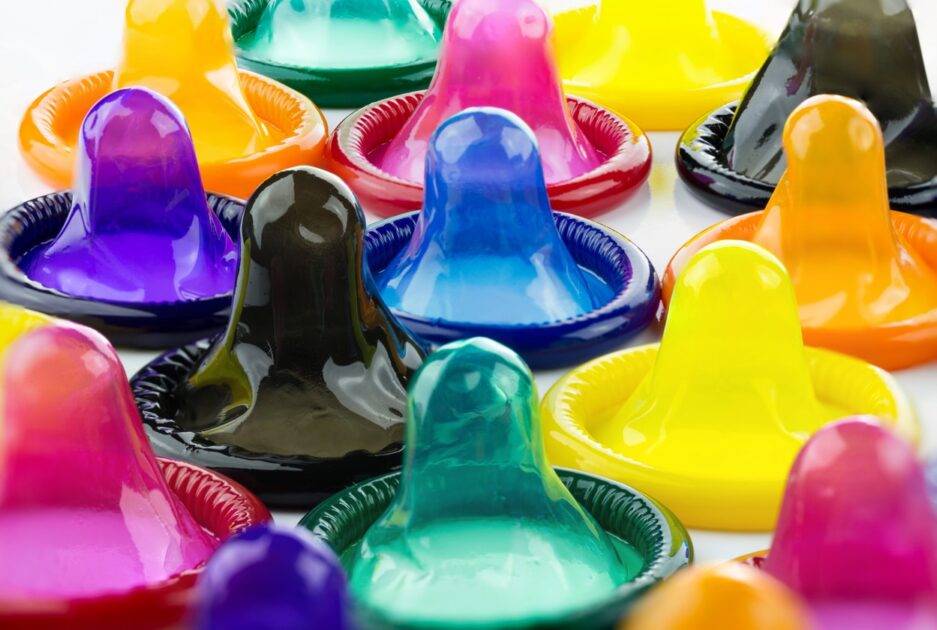Trichomoniasis: symptoms, treatment and prevention
Trichomoniasis is a common parasitic infection that may cause abnormal discharge and pain

Trichomoniasis, also known as TV, is a common infection caused by a small parasite (Trichomonas Vaginalis) that irritates the urinary tract and vagina. It can cause urinary tract and vaginal infections and can also increase your risk of getting other sexually transmitted infections (STIs).
How do you get trichomoniasis?
TV is passed from one person to another in three ways:
What are the symptoms of trichomoniasis
Around 70% of people who have TV don’t have any symptoms and men, or those with a penis, aren’t very likely to notice them at all.
Symptoms in women (or people with a vagina):
- Abnormal vaginal discharge
- Vaginal discomfort
- Burning or stinging sensation when you pass urine
- Offensive smell
- Possibly no symptoms at all
Symptoms in men (or people with a penis):
- Discharge from penis
- A rash on the penis
- It’s rare but, a burning or stinging sensation when you pass urine
- Possibly no symptoms at all
How do you treat trichomoniasis?
The first step is to go to your GP or an STI clinic to have it diagnosed and you’ll be able to begin treatment. TV is usually taken care of with antibiotics. If you have TV, your partner/s will also be offered testing and treatment. Read our article on telling your partner you have an STI for advice on how to have that conversation.
It is worth visiting the clinic or doctor again two weeks after treatment for a repeat test to ensure the infection has been treated effectively.
What happens if you don’t get treatment for Trichomoniasis
Without treatment, the infection can last for months. Trichomoniasis tends to make sex very uncomfortable and you run the risk of passing it on to your sexual partner.
Trichomoniasis in pregnancy
TV can occur during pregnancy and it is important that it is treated properly. If TV in pregnancy is not treated, there is an increased risk of labour starting early and the baby being delivered prematurely, or the baby having a low birth weight.
The tests and treatment are the same in pregnancy. Your doctor, obstetrician or sexual health nurse will be able to discuss this in more detail with you.
How can I stop myself getting trichomoniasis?
There are many great options to help protect your sexual health, but none of them are 100% effective. Even if you use condoms every time you have penetrative sex, you are still at risk of getting genital warts and herpes, as these can be passed through skin-to-skin contact. Going for an STI check or taking a home STI testing kit with a partner before having sex, can be a great way of protecting yourself and those you have sex with against STIs and HIV. However, not all STI checks check for all STIs, so it is important to speak to your healthcare provider and ask them what is being tested for as part of your screening.
Discussing with your sexual partners the type of contraception or protection options available to you, and agreeing on a type that works for everyone involved can help to reduce the risk of pregnancy, STIs and HIV. Looking out for sores or symptoms on a partner’s genitals before having sex with them, can help to identify STIs that they may not be aware of. If you do see any signs that someone may have an STI, do not have sex with them until you know for certain it is safe to do so. Asking someone about their sexual health history is the responsible thing to do before having sex, and it should not be taken as an insult if someone asks you about yours.
Looking after your mental health after an STI diagnosis
If you are diagnosed with an STI, you might feel a mixture of emotions. Unfortunately, there is still a stigma in our society surrounding STIs that can cause some people to feel shame about having one. However, like any other healthcare diagnosis, you are not to blame for your STI and have not done anything “wrong”. Being diagnosed with an STI can have a negative impact on your mental health and wellbeing and if you don’t feel comfortable telling friends or family about it, you might feel isolated and alone. If you have found out you have an STI and you’re finding it difficult to cope, there are things you can do to support your mental health.
- Remember that STIs are common and lots of people have one at some point in their life, even though they aren’t talked about a lot
- Take time out to do something you enjoy and practice self-care
- Reach out for mental health support if you need it. If you don’t feel comfortable talking to a friend or family member, our 24/7 anonymous text service, 50808, can help
- Be patient with yourself and allow yourself to feel your emotions. It’s ok to be upset when you find out you need healthcare treatment. It’s important to take the time you need to adjust
Feeling overwhelmed and want to talk to someone?
- Get anonymous support 24/7 with our text message support service
- Connect with a trained volunteer who will listen to you, and help you to move forward feeling better
- Whatsapp us now or free-text SPUNOUT to 50808 to begin.
- Find out more about our text message support service
If you are a customer of the 48 or An Post network or cannot get through using the ‘50808’ short code please text HELLO to 086 1800 280 (standard message rates may apply). Some smaller networks do not support short codes like ‘50808’.





